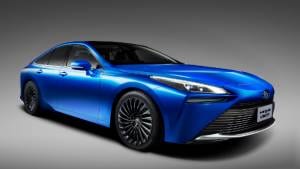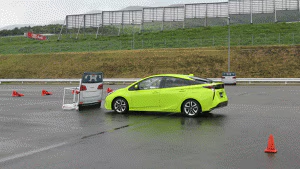Is Toyota considering the Mirai fuel-cell electric vehicle for India?
Toyota could be considering its Mirai fuel-cell electric sedan for an India launch. The company today announced it has begun a pilot project in Delhi with the government automotive testing agency, iCAT (International Centre for Automotive Technology) to test the Toyota Mirai hydrogen car in Indian conditions. This seems to be a serious effort to raise awareness about hydrogen as a fuel source, at the very least, since Toyota India has also partnered with the Ministry of Road Transport and Highways to spread awareness about this car.
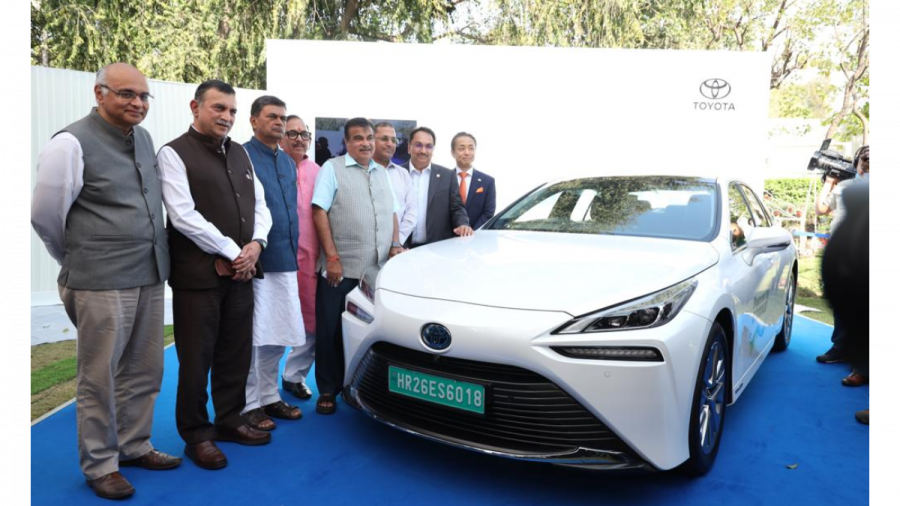
Why is Toyota testing the Mirai FCEV in India?
Toyota has traditionally been a strong proponent of strong hybrids and FCEVs, and has followed that stance in India too. Although with the rapid rise of BEVs as the preferred alternative to ICEs, the company has taken steps to strengthen its EV line-up with SUVs like the recent bZ4x. In India too, Toyota is expected to launch an EV along with Maruti Suzuki in the mainstream segment in the next couple of years. But with the Indian EV market at such a nascent stage, raising awareness about this fuel type could be a good move. Unlike in the West where hydrogen production and fuelling infrastructure is still weak, India could follow a path by which the infrastructural needs for both BEVs and FCEVs are developed symbiotically.
What are fuel-cell electric vehicles?
Put simply, a hydrogen fuel cell powertrain such as the one developed here is powered by the electricity generated by an electrochemical reaction between the hydrogen from the tank and oxygen from the air. Hydrogen molecules are split into protons and electrons. The protons are passed through a membrane while the electrons move through a circuit. These eventually combine again with oxygen, generation water and heat as the only by-products. This makes FCEVs very eco-friendly and with the absence of any moving parts also very reliable.
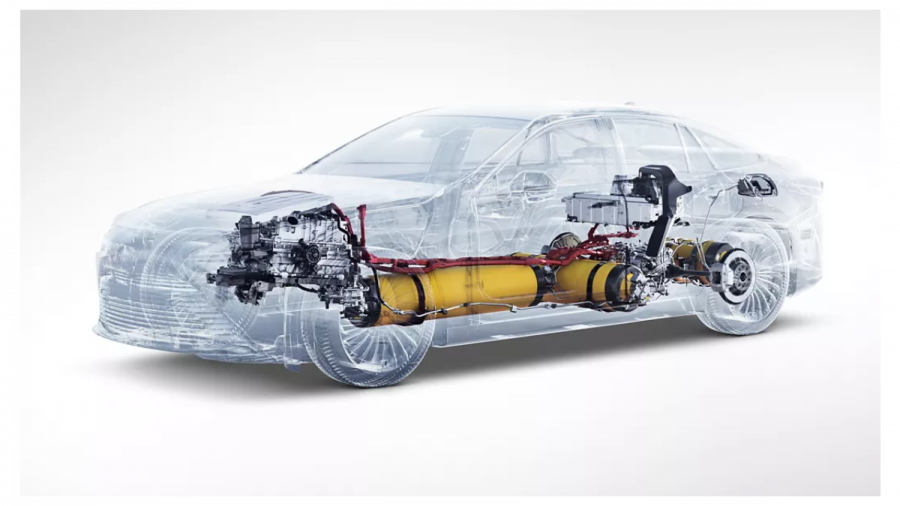
FCEVs have some distinct advantages over BEVs. The biggest of these is that there are no long charging times or the need to lug around large battery packs, hydrogen for the powertrain is skilled and stored in a tank much like regular fuel. The main drawbacks, which still need some work, is manufacturing hydrogen since the gas is inherently unstable and doesn't exist in its natural form on the planet. This also makes its logistics difficult.
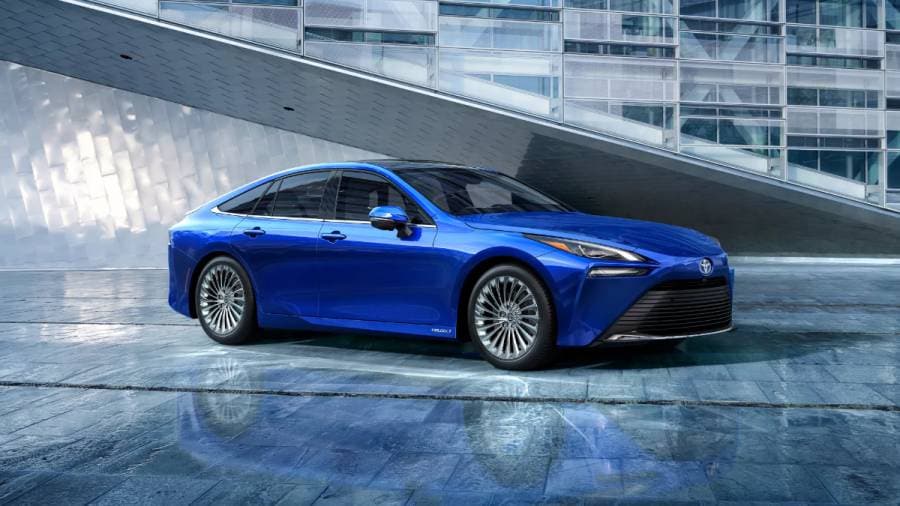
Toyota Mirai FCEV range, specifications, features
If the Toyota Mirai were to launch in India since it will invariably come in as a CBU. The second-generation Mirai is based around a reworked Lexus LS architecture which should mean that it will be a premium offering. The Mirai is powered by a 189PS and 406 Nm electric motor with the small 1.24 kWh battery pack been supplied by a 142-litre hydrogen tank. This takes five minutes to refuel and can do 650 km on a full tank.
Notable features on the Toyota Mirai include HUD, 8-inch digital instrumentation, 12.3-inch touchscreen infotainment, three-zone climate control, heated and cooled seats, 14-speaker JBL audio and ambient lighting. If it were to launch in India, expect it to be priced over Rs 1 crore.
Also read,
2019 Tokyo Motor Show: Toyota Mirai FCEV concept unveiled
Hyundai Nexo fuel-cell electric vehicle being considered for India
-NA-
-NA-
Automatic
-NA-
-NA-
-NA-

